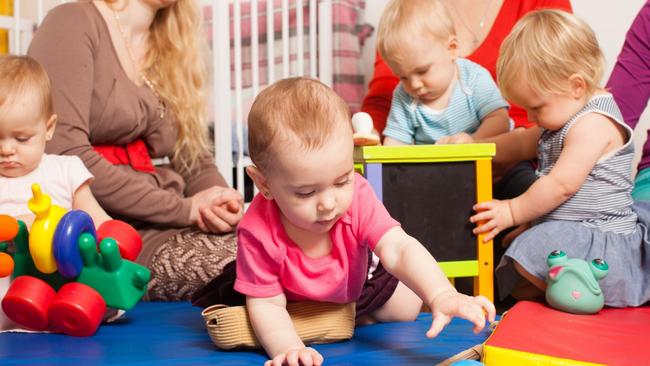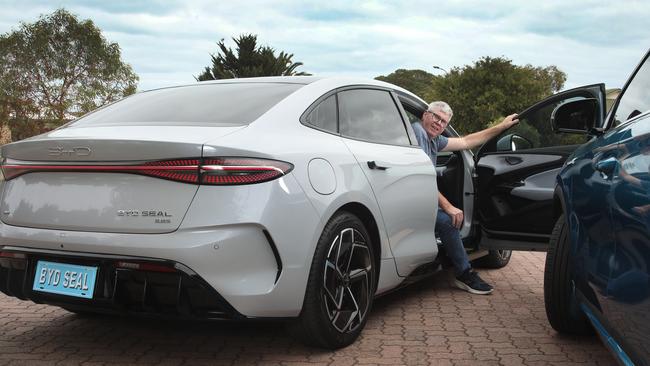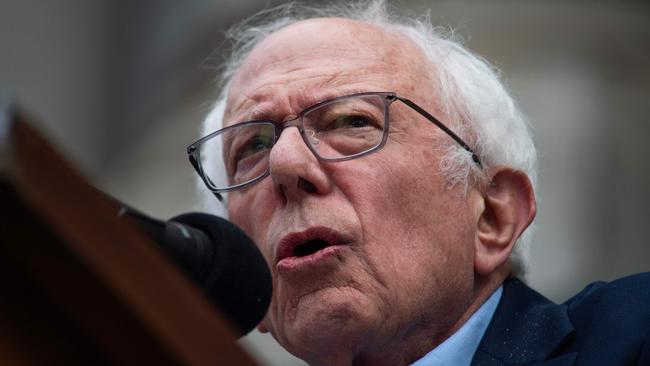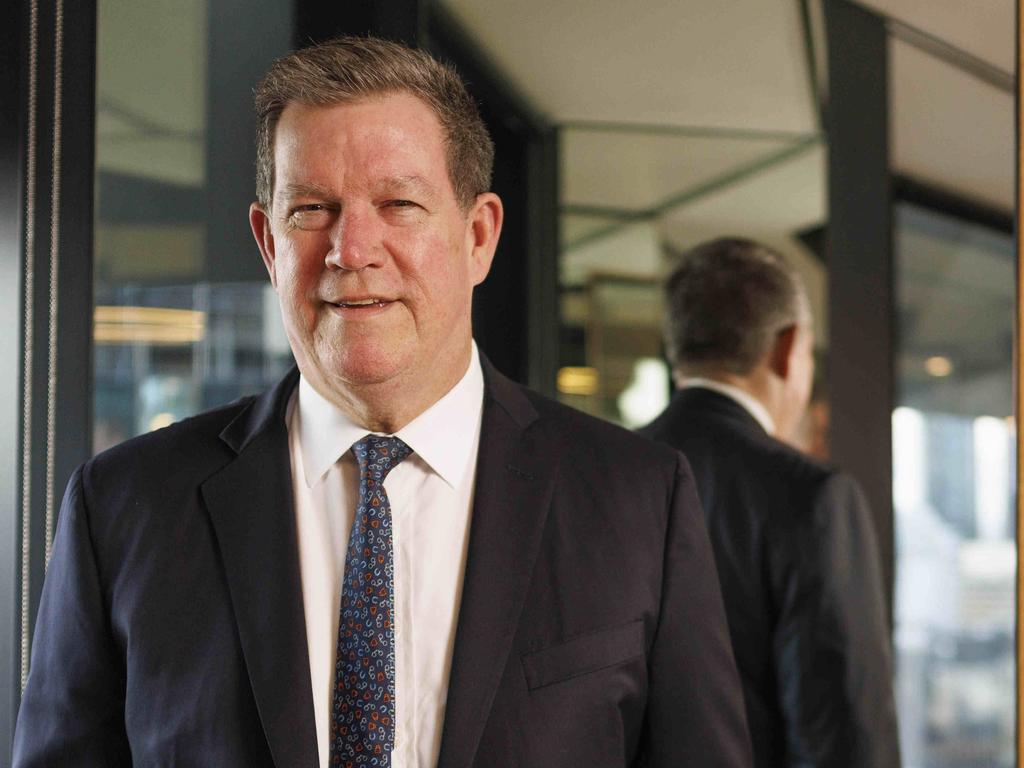
Almost every prime minister seeks to leave a legacy. It’s clear Anthony Albanese wants his legacy to be universal childcare – where everyone with preschool children will be able to access childcare at a low, flat daily fee.
The facts that such an arrangement would be ruinously expensive, may not even be possible and will favour those parents in the top quartile of the earnings distribution don’t seem to concern him unduly. His close feminist pals are fully on board, and he is determined to deliver.
Childcare assistance is among the top 20 largest-spending programs. In the financial year, $16bn will be spent subsidising childcare fees. Fee subsidies are currently determined according to household income on a sliding scale up to a $533,000 limit. Any extension to a universal, flat-fee model would be extremely expensive.
The Productivity Commission estimates it would add another 60 per cent to the annual cost of childcare fee subsidies. By 2028-29, spending on childcare fee relief would be close to $30bn were the universal flat-fee arrangement to be in place. On the face of it, it looks like another NDIS in the making.
In this context, it is worth recalling that in the March budget, a cumulative underlying deficit of over $150bn was forecast for the four years ending in 2028-29. (The figure for the cumulative headline deficit, which includes off-budget spending, was higher again, at $236bn.) The medium-term forecasts contained continuous budget deficits for a decade.
Of course, these annual losses must be covered by more government debt. By 2028-29, it is estimated government debt will be more than $1.2 trillion, or 37 per cent of GDP. Net debt will be about 23 per cent of GDP.
The ratings agencies begin to worry when government debt rises above the 30 per cent mark in a small open economy such as Australia’s. It will be net debt that is more important, but adding in the rapidly increasing state government debt and this trigger figure is quickly arrived at.
A plausible assumption will be made that the commonwealth would bail out any state government that got into financial trouble. The fact S&P warned the government (and the opposition) of its unfunded spending plans prior to the election was highly consequential.
In all likelihood, the re-elected Albanese government will seek to avoid the country losing its AAA rating and facing the unpalatable effects, including higher interest payments on the debt. The government will therefore only be able to proceed with the shift to universal flat-fee childcare by raising additional tax revenue.
Bearing in mind that all forms of taxation have negative economic consequences, the aim should be to impose taxes that raise revenue at the least economic cost. The principles that should govern the design are efficiency, equity and simplicity.
A common refrain is to broaden the base and lower the rate; exemptions, carveouts and special rules should be kept to a minimum. Moreover, the equity of a tax system should be judged as a whole, rather than by simply considering individual tax measures such as the GST.

There are essentially three tax bases the government can consider for raising more revenue – income, consumption and wealth/savings. When it comes to taxing income – including company profits – there is some scope to raise more revenue through bracket creep.
It would be unlikely for the government to raise the rate of company tax because of the need to secure more business investment. Indeed, the pressure is on to reduce the rate although it’s equally hard to see Labor doing this.
When it comes to taxing consumption, the GST is the largest source of revenue. However, in relative terms, GST revenue has been falling, in part because of the various exemptions.
Note that all GST revenue is returned to the states and territories, so there is mainly political pain for the federal government in changing the rate or coverage of the GST without any revenue windfall. There is also the complication of the special deal with Western Australia.
The excises on petroleum and tobacco products are both reasonably large sources of revenue. But the shift to electric vehicles and the upsurge in the sale of illegal tobacco products mean these revenue sources are dwindling.

This then leaves wealth/savings. There is no doubt taxation of wealth/savings is a dog’s breakfast. Some forms of savings are taxed at an individual’s top marginal tax rate while other forms are concessionally taxed. The family home is exempt and there are no death duties. There is a strong case for streamlining taxation of wealth/savings bearing in mind economic growth requires strong incentives for wealth accumulation.
There is no indication the government has a comprehensive review in mind. Rather, it will pick off those forms of savings held by relatively wealthy individuals and seek to generate more tax revenue this way. Over time, these measures can be expanded to cover more individuals and thereby raise even more revenue to cover the government’s ambitious spending plans, including universal childcare.
This is where the stalled plan to levy a 30 per cent rate of tax on superannuation balances of more than $3m comes in, a dollar figure that would not be indexed. The key factor that has delayed this plan is the intention to tax unrealised capital gains as a means of operationalising the measure. This aspect of the new measure suits the Labor-aligned industry super funds, including the damage done to the self-managed superannuation sector.

With the post-election configuration of parliament, it seems likely some form of this scheme will become law. The Greens have no problem with taxing unrealised capital gains – it is part of Bernie Sanders’ playbook – but want the cut-off point to be $2m.
It’s hard to find words to describe how appalling this proposal is, including the dangerous precedent it would set.
By failing to index the cut-off point, it will drag in more and more superannuation members over time. It will end up clashing with the indexed balance cap figure (this sets the dollar sum for tax-free pensions for superannuants), currently $2m. It has extraordinarily high compliance costs. It is also likely to exclude former parliamentarians and public servants enjoying generous defined benefit pensions. This will include Albanese in due course.
In 2016, the Coalition government introduced numerous changes to the superannuation system to raise more revenue. Over time, it has become clear the predictions of much higher tax revenue from superannuation have simply not come to pass. The same is likely this time, but further damage to the system of superannuation and to the economy is inevitable.
“Wrong way, turn back” is not advice the Albanese government is likely to follow. But there are other, less harmful ways of raising revenue and these should be pursued rather than taxing unrealised capital gains.






